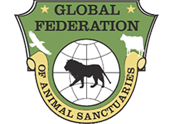With the exception of the occasional snow flurries, we’re welcoming the arrival of spring here at the sanctuary.
For the small herd of rescued Jersey cattle that resides here, the onset of spring corresponds with green pastures for grazing and warm sunshine for sunbathing. They’re already nibbling at the carpet of new growth that has emerged from the muddy winter paddock and we’ve begun to catch them delving into the creek to eat the vegetation. Soon, we’ll open the path to the summer pastures so they can roam the hillsides on either side of the chimpanzee enclosures, grazing and napping the long days away until next winter.
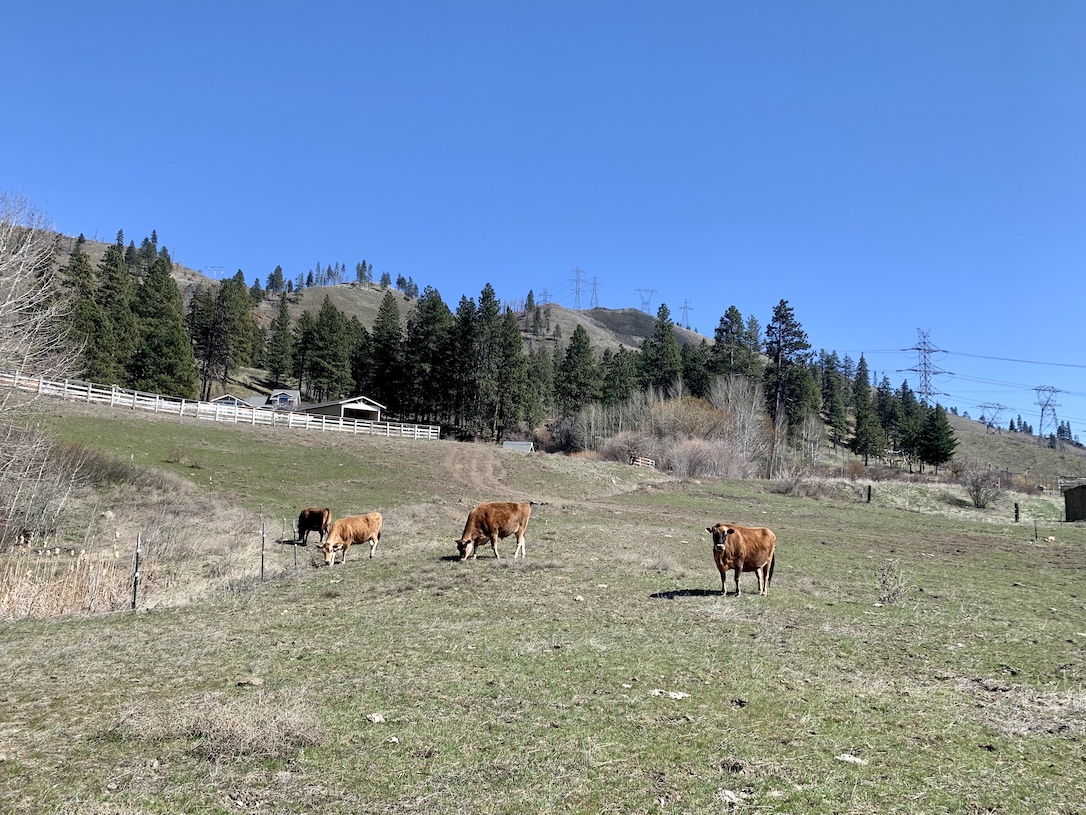
The cattle may require less attention than the chimps, but they’re not entirely independent. In fact, they require a bit of maintenance, especially in the spring and fall. Each year, there are a few things that need to happen before the cattle can go on summer vacation.
First, we need to make sure the pasture grass is ready for cattle. Domestic cattle aren’t native here and turning the herd out to pasture too soon can damage the vegetation and terrain (and can also be harm their sensitive guts).
We also need to check the pasture fences and make sure nothing was damaged during the winter storms and freezes.
Then, we have to wean them off of the supplemental hay that we provision through the colder months.
Finally, we prefer to have their annual veterinary exams completed while they’re still hanging out in the winter paddock.
We’re gradually working our way down that checklist. Even though the pastures aren’t quite ready yet and we’re still giving the bovines a bale of hay each morning, we were able to do their annual exams last week.
To facilitate these procedures, we closed the cattle in the Bud Box and then did a quick exam on each individual before letting them back out into the larger paddock. Dr. Erin led the exams as J.B. and I took notes and provided a little extra muscle (although even the two of us are relatively useless when the rowdy patient weighs over a thousand pounds).
The routine exams consisted of full body check-ups, hoof inspections, annual vaccinations, and follow-up diagnostics related to any minor health issues that caregivers had previously documented (e.g. Meredith’s brief “ain’t doin’ right” in January). As usual, Dr. Erin worked quickly; even the tamest of domestic cattle don’t particularly enjoy being confined and restrained for very long, which can cause them to grow fractious in a hurry.
Fortunately, we successfully completed the essential tasks and the cattle resumed their normal routine almost immediately. In addition to our meticulous documentation of the exam procedures and findings, we also managed to take some quick snapshots to share with you all.
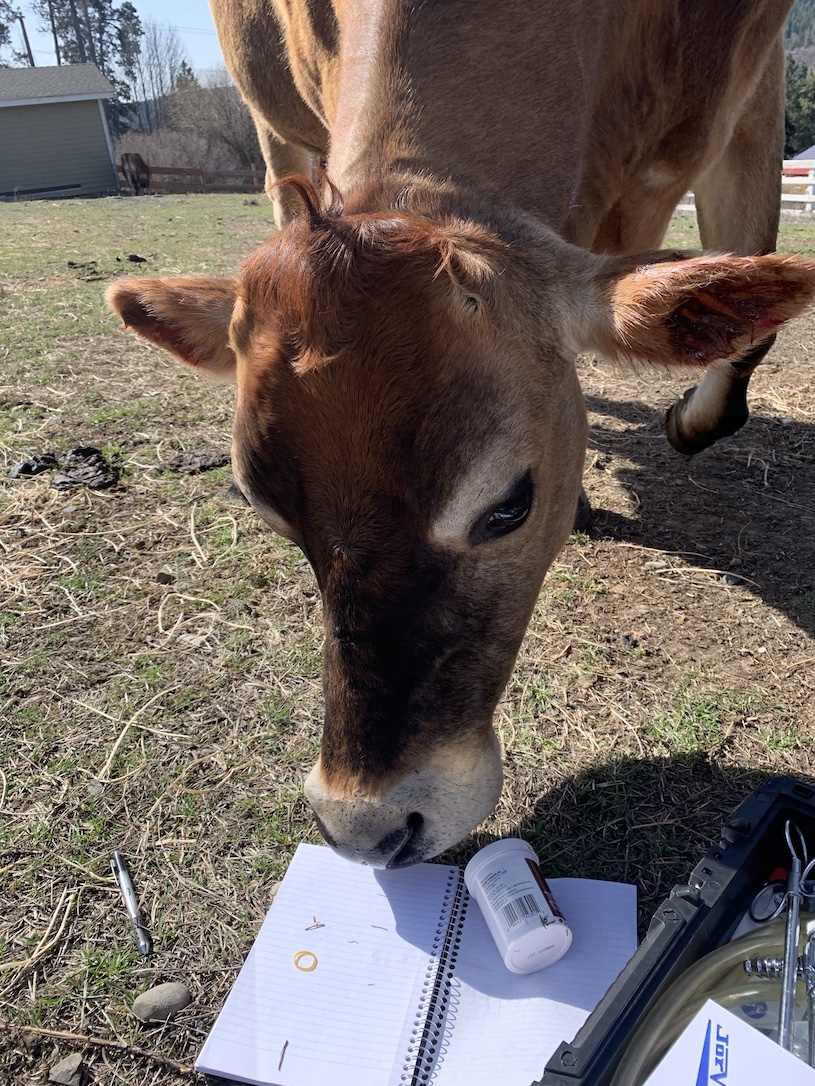
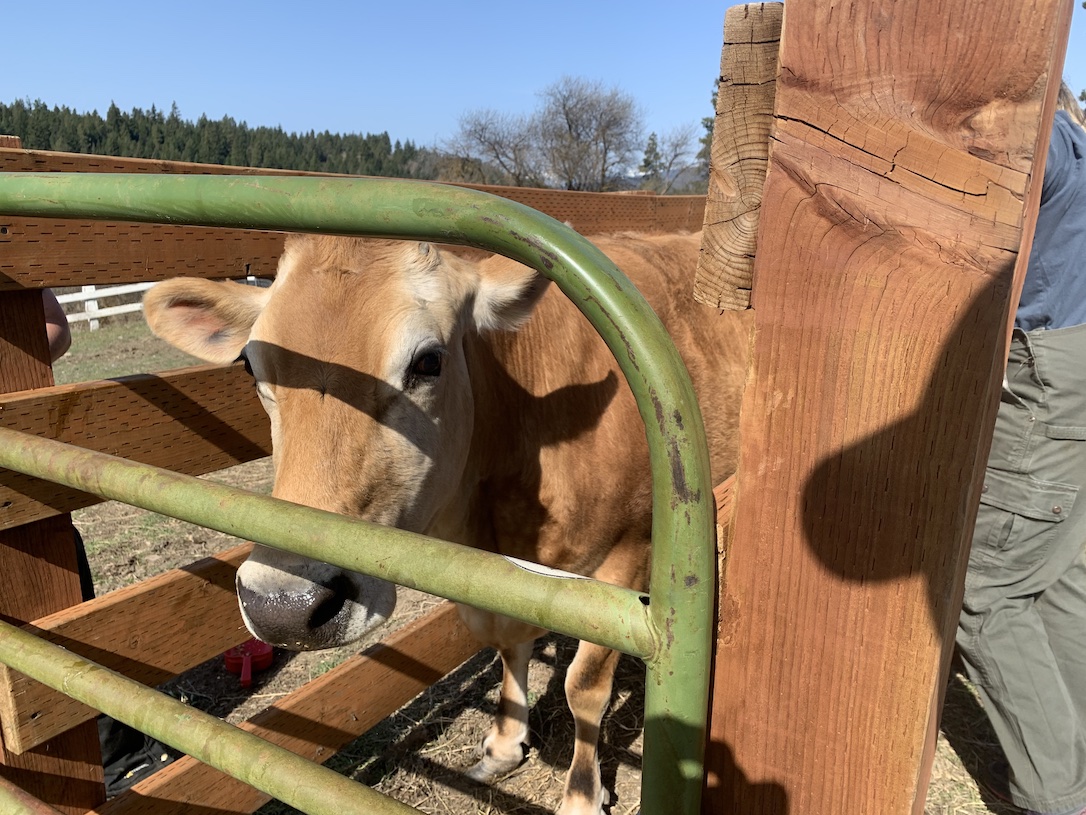
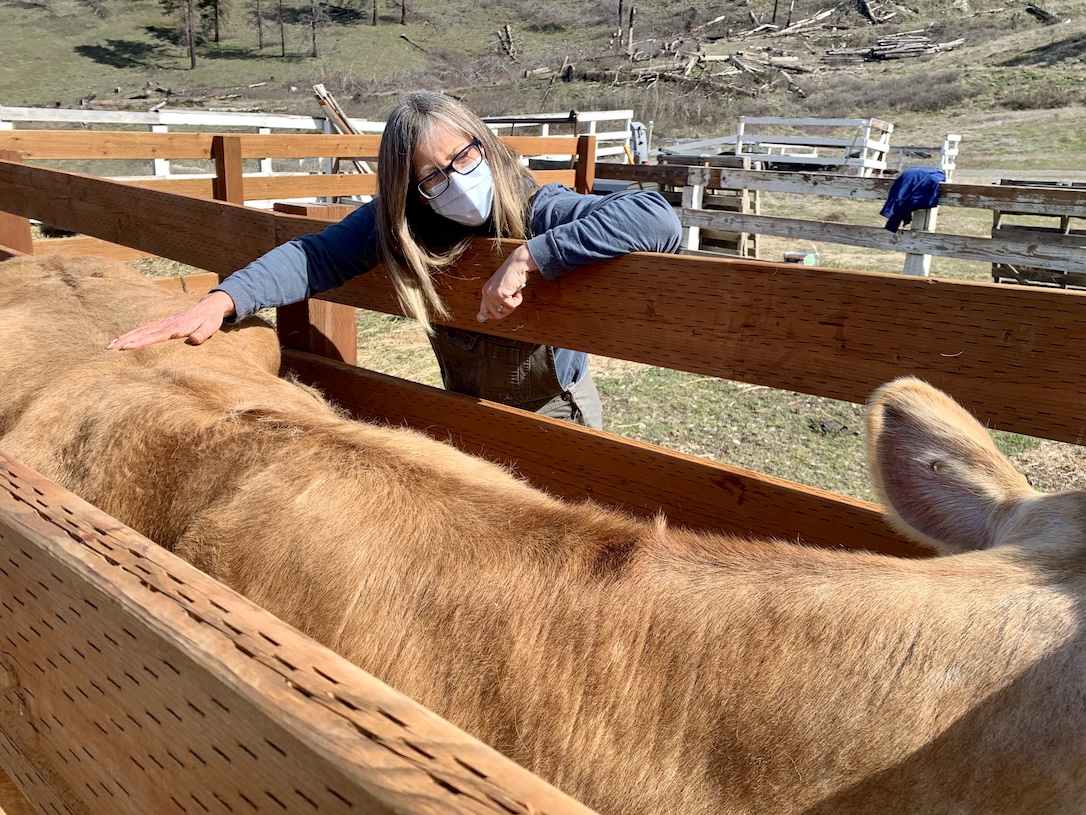
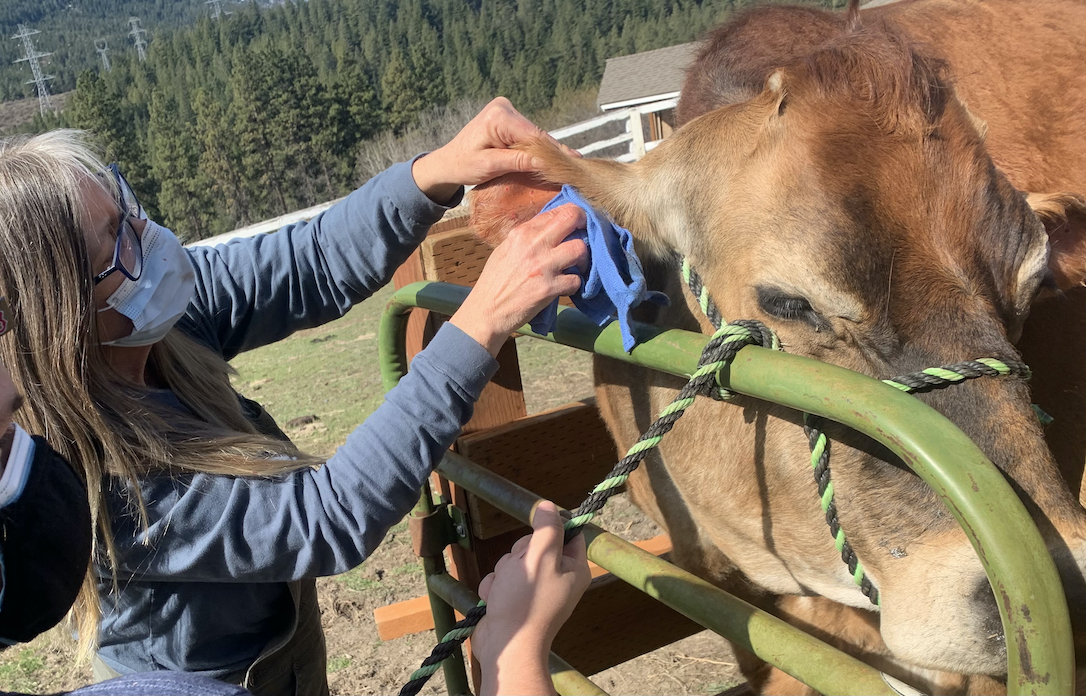
We’re happy to report that everyone looked great and seems to be in prime physical condition. (Nutmeg, especially, is the epitome of health and oozes masculine confidence. If you’re not yet convinced, check out some of our past blogs about him. You’ll be in awe of this majestic lad.)
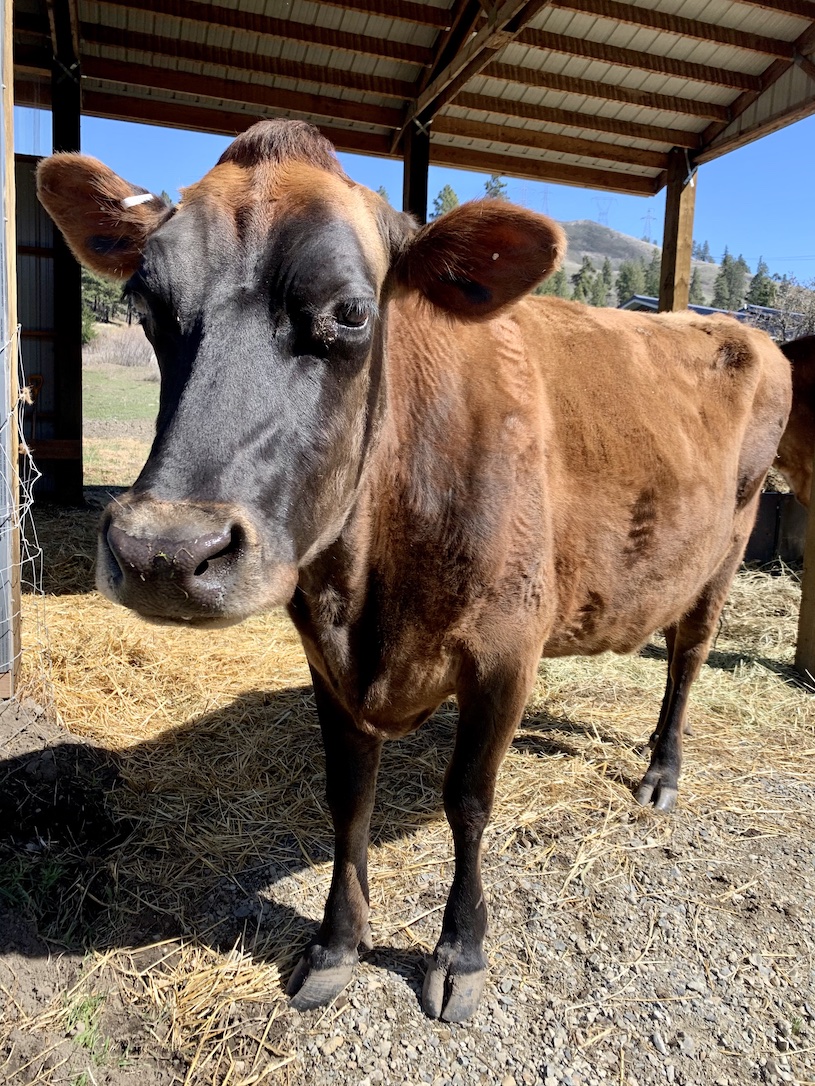

Now, the cattle only need their annual hoof trims and a little more growth in the pastures before they can resume their summer landscaping duties!



